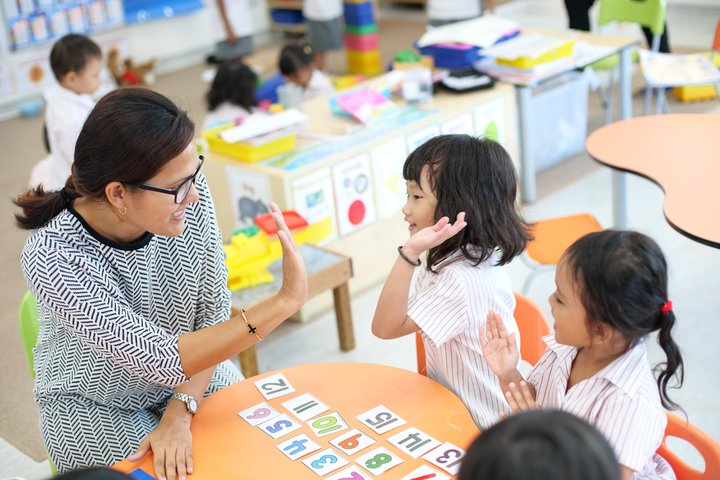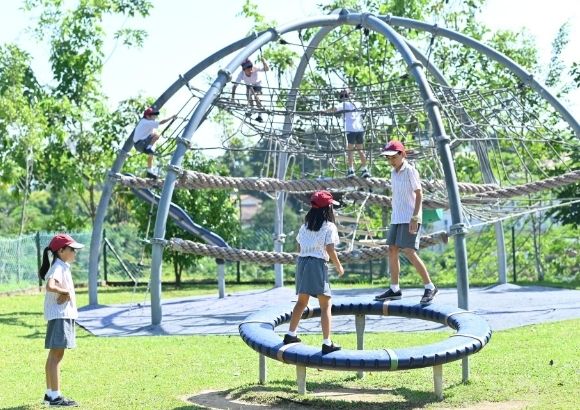The Importance of Helping Children Cope with Stress
Published by SchoolAdvisor | Aug 16, 2020Stress is a normal part of life for adults and children alike. For some, it may be considered a healthy aspect of growing up as it helps children solve challenges, build knowledge and acquire new skills. However, if the child is not taught to deal with them appropriately, it could lead to worse stressful situations and permanent repercussions. Being in a place of constant stress especially for a child can cause permanent adverse effects physically and mentally.
Kris Davis, Head of Primary at Kolej Tuanku Ja’afar says children who lack the skills to successfully identify and deal with stressful situations are more likely to show greater extremes in behaviour and mood. Consequently, the stress may have a negative impact on their physical and mental health. “The good news is that as parents and educators, we can help children to learn how to recognise the signs of stress and teach them healthy ways to deal with it,” he says.
When children are aware of how to respond positively to stressful situations, Davis notes they are much more likely able to self-regulate their emotions, recognise effective coping strategies that work for them or find other sources of support such as a trusted adult or friend.
Noticing the minute details
It is not always simple to recognise when children are stressed. Davis states children may respond to stress in a variety of different ways depending on their age, personality or level of development. Hence, he thinks it is important for parents and schools to educate themselves on potential signs of stress in children.
He says, “Younger children can demonstrate signs of stress and these may present themselves in the development of new habits or behaviours. For example, this could include thumb sucking, hair twirling or nose picking. Of course, it is important to note these habits can also develop naturally in happy, healthy children and do not necessarily mean that your child is stressed.”
Davis provides other short-term behavioural changes that could indicate signs of stress:
- overreacting to minor problems
- mood swings
- becoming withdrawn and insular
- changes in sleep patterns
- bedwetting
Aside from these signs, some children may also display physical indicators of stress including stomach pain and headaches. There are also cases where children may have trouble concentrating on tasks or completing their schoolwork.
Equipped to support the children

If a parent or teacher notices these symptoms in a child, it is crucial to take it seriously, no matter the reason for the stress. It is also important to note that children react and cope differently to stress. It is usual to see children coping with stressful situations through tears, tantrums or retreating from unpleasant situations.
This is because a child’s mind is not yet fully developed to think of solutions and consequences. Children who grow up in healthy supportive environments learn to consider their options or find compromises or substitute comfort, building resilience to bounce back from stress and crisis.
Hence, Davis advises educators and parents to recognise the importance of responding to a child in a caring and supportive way. “It is crucial that we take the time to talk with them about known or potential stressors, actively listen to their concerns and give them extra love and attention to help reassure and support them.”
He suggests it can be beneficial to create or keep to regular routines to provide the stability and remind children that they are in a safe and loving environment. A good routine should also provide opportunities for the child to play and relax, in addition to their other schooling and extracurricular commitments.
All in all, he reminds parents to listen to their children, speak kindly and reassure them. Nevertheless, if signs of stress persist or worsen, it is wise to seek help or advice from a registered health care provider, counsellor, therapist or healthcare providers.
Looking for a school which ensures your child is physically, mentally and emotionally healthy and resilient?
Kolej Tuanku Ja’afar ensures its students are well taken care of physically, mentally and emotionally. It employs a team of trained and dedicated counsellors who are available to support all students in a calm and safe environment. This provision continued even throughout the remote learning period which has been invaluable, given the sudden changes and disruption to student’s regular routines and interactions with others.
The responsibility to ensure that children are kept safe and happy is embedded among KTJ staff culture. The school takes a step further by employing a full-time school doctor who is qualified to work with staff and students through a range of physical and mental health issues. The doctor also works with the school’s Safeguarding Team, registered nurses and other key staff to help support students to be mentally and emotionally healthy.
Want to know more on how KTJ ensures the mental and emotional wellbeing of its students at school? Visit HERE, contact Jane Wong at registrar@ktj.edu.my or call +606 -758 2561.

